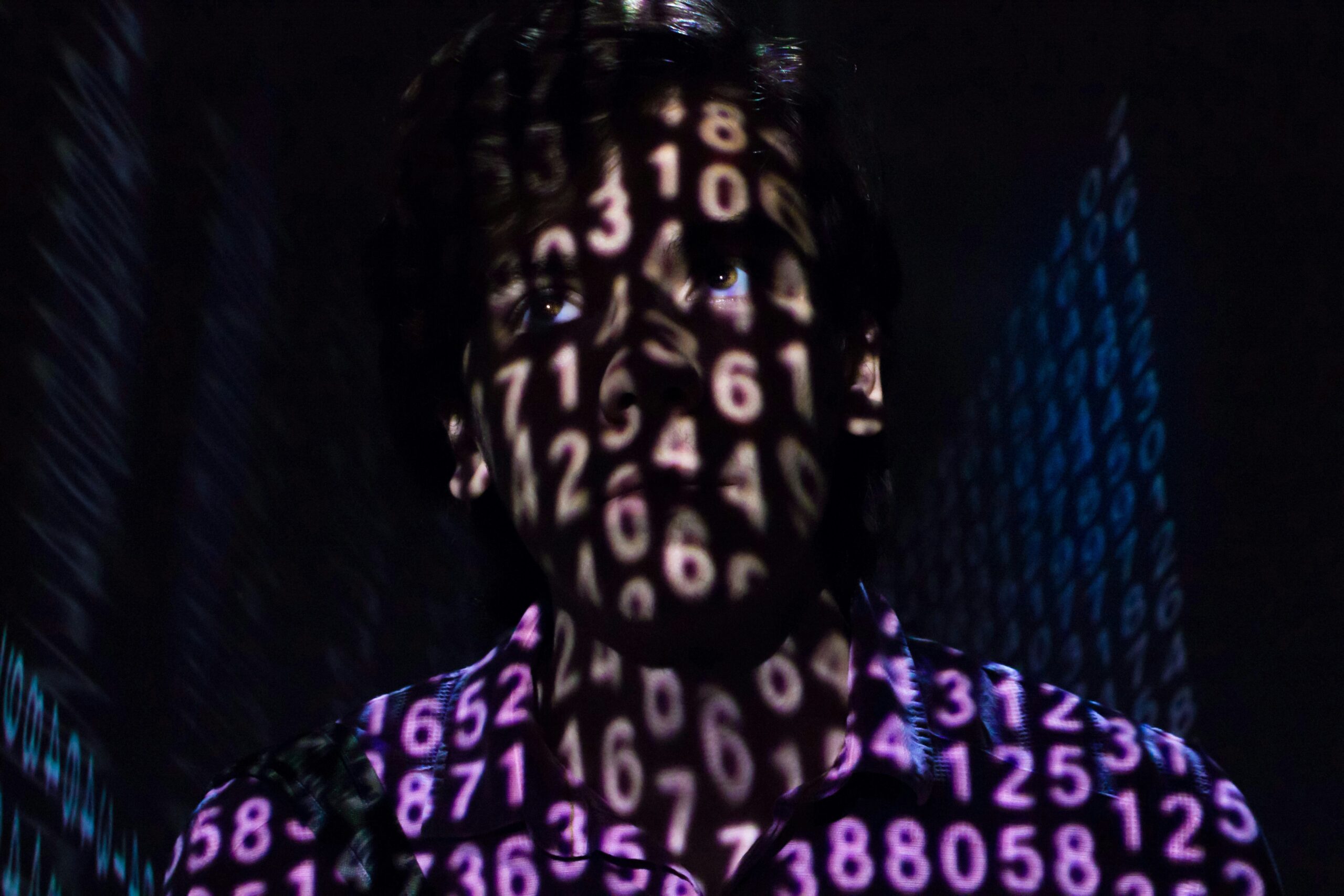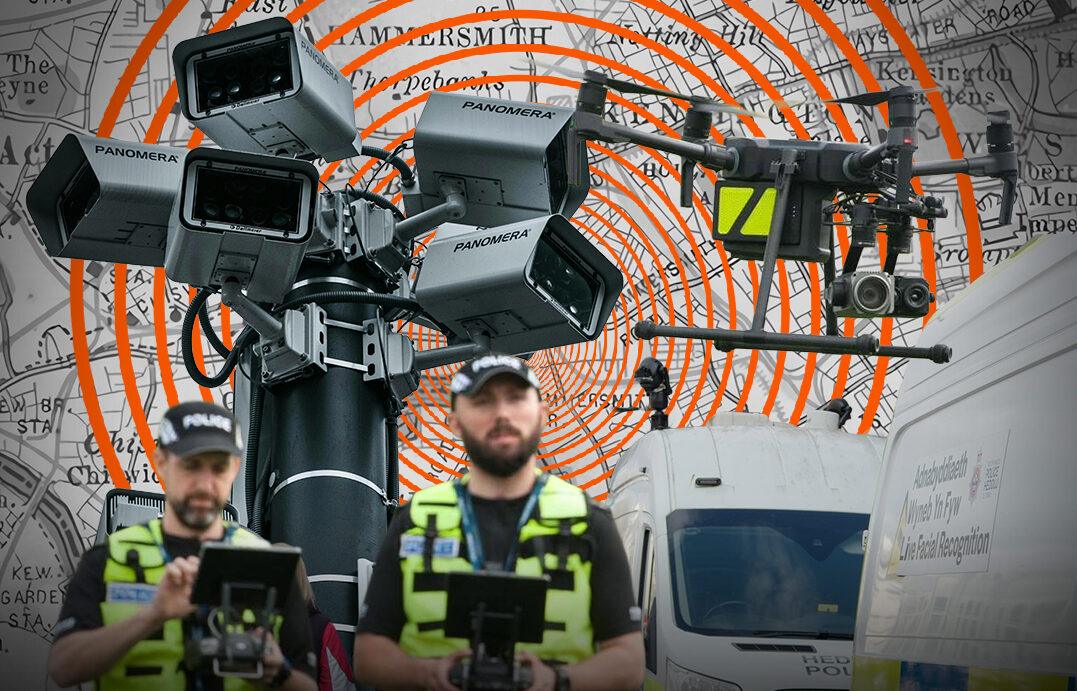If you want an overview of just how reaching the UK digital ID will be - it will cover (but not be limited too) the following (in the very near future - perhaps accelerated by a new COVID or 'national emergency'):
It will likely expand from being needed for a job, to include renting, online access, doctor/NHS access, shop access, banking and benefits (to start with).
It will be connected to facial ID systems, the 'online safety bill', and online AI surveillance. As it's on your phone, it will also be linked to geo-location/geo-fencing.
Tie that together, and add a 'COVID' and you'll be physically locked at home (unless you can get out without taking your phone - and not arrested for not having your phone/ID, actually find a shop you can get into/pay at without your ID). And it becomes a vaccine passport too.
Have a digital currency/get rid of cash - and that's it. Everything you can do or say, everywhere you can go, everything you can buy or sell is monitored and controlled. Fines/taxes etc will be taken automatically. Bank account access will be denied automatically (see the Canadian Trucker protests). Services will be denied automatically. Travel will be denied automatically.
A virtual prison/prison guard that you will (have to) carry in your pocket.
Here's the head of Big Brother Watch describing it's implications:
Or if you'd prefer to read:

 bigbrotherwatch.org.uk
bigbrotherwatch.org.uk

 bigbrotherwatch.org.uk
bigbrotherwatch.org.uk
It will likely expand from being needed for a job, to include renting, online access, doctor/NHS access, shop access, banking and benefits (to start with).
It will be connected to facial ID systems, the 'online safety bill', and online AI surveillance. As it's on your phone, it will also be linked to geo-location/geo-fencing.
Tie that together, and add a 'COVID' and you'll be physically locked at home (unless you can get out without taking your phone - and not arrested for not having your phone/ID, actually find a shop you can get into/pay at without your ID). And it becomes a vaccine passport too.
Have a digital currency/get rid of cash - and that's it. Everything you can do or say, everywhere you can go, everything you can buy or sell is monitored and controlled. Fines/taxes etc will be taken automatically. Bank account access will be denied automatically (see the Canadian Trucker protests). Services will be denied automatically. Travel will be denied automatically.
A virtual prison/prison guard that you will (have to) carry in your pocket.
Here's the head of Big Brother Watch describing it's implications:
Or if you'd prefer to read:

The National – Digital ID system is a serious threat to civil liberties — Big Brother Watch
Defending Civil Liberties, Protecting Privacy
The National – Digital ID system is a serious threat to civil liberties
Big Brother Watch Team / September 28, 2025
On September 26, Prime Minister Keir Starmer announced that it will be mandatory to use digital ID to prove your “right to work” in the UK. But if it indeed comes to fruition, Starmer’s “Brit Card” will be far more than an app on your phone – it will usher in a new era of mass surveillance and do irreparable damage to our civil liberties.
Positioning this requirement as a tool to combat illegal migration is a red herring. We already have to prove our right to work when we get a job – British citizens tend to use physical documents like passports or National Insurance numbers and legal migrants use their eVisa. Proponents of digital ID argue that a mandatory digital ID would make it more difficult to live and work in the UK, by exposing employers who have not complied with the checks and targeting immigration enforcement resources towards them. But it is ludicrous to suggest that employers who do not currently comply with “right-to-work checks” and operate “off-the-books” will suddenly change their mind because the rest of the country is mandated to use state-issued ID. In practice, it will drive unauthorised migrants further into the shadows, into more precarious work and unsafe housing.
While this is currently being proposed as a “right-to-work” check, mandatory ID schemes are highly susceptible to expansion beyond their original purpose. Indeed, the Government is already salivating at the idea that a digital ID could be used for online shopping, voting and detecting welfare fraud. Historically, ID schemes have repeatedly been proposed to solve the moral panic of the day – be it bigamy, football hooliganism or terrorism. In reality, there is very little evidence that they will achieve these aims, while the hugely disproportionate threats to civil liberties makes them difficult to justify.
Digital ID systems can be uniquely harmful to privacy, equality and civil liberties. They would allow the state to amass vast amounts of personal information about the public in centralised government databases. By linking government records through a unique single identifier, digital ID systems would make it very easy to build up a comprehensive picture of an individual’s life. Currently, cross-departmental data sharing is slowed down through data silos, but what is lost in efficiency is preserved by safeguarding against excessive data-sharing. For example, what I share with my GP may be different to what I might want to share with the police when reporting a crime, and HMRC doesn’t need to know my GCSE results in order for me to pay my taxes. It is perfectly reasonable that we should want to limit who can know what about us. Just because the state administers public services, it doesn’t mean it should have a full view of our lives available at all times
We have been sold the line that we are all more willing to carry digital ID today than we were 20 years ago, as we are now accustomed to handing over our personal data to big tech companies. However, the relationship between the citizen and the state is far different from our relationship to private companies, whose services we can choose to use or reject. To resign ourselves to the idea that just because big tech “knows more about us than we know about ourselves”, we should permit the state to infringe on our private lives with similar zeal, would be defeatist. There is no reason to accept a digital ID system which would accumulate power in the hands of the state with very few benefits for citizens.
While some members of the public may feel comfortable with this Government introducing a mandatory digital ID, they should be alert to the reality that, once built, these types of systems are difficult to dismantle. That means that future governments – which may have less interest in preserving rights or the rule of law – will also have access to vast amounts of our personal data which can be stored, amalgamated and searched.
Digital ID systems also lend themselves to exclusion. While all of us are likely to be asked to identify ourselves more often as we go about our daily lives, in practice, it is likely to be minoritised groups who are asked to prove they have the right to be here more often than others.
Making basic services accessible only through a single online point of failure will also lead to people being shut out from essential services when these systems fail or are inaccessible. The eVisa system that is compulsory for more than four million migrants has produced a raft of errors, leaving people stranded at the border, unable to start new jobs and wrongfully receiving medical bills.
With little to gain and so much to lose, the opposition to ID cards is not surprising. More than a million people have already signed the parliamentary petition opposing the policy. Politicians from the left, right and centre have been quick to condemn Starmer’s announcement, and public opinion polling is rapidly tilting against digital ID. The Government should take heed of the public’s opposition and quit while they’re ahead – before spending more time and money going down this route that leads to nowhere.
– Jasleen Chaggar, Legal and Policy Officer

BBC – Council facial recognition plans mark “unprecedented level of mass surveillance” — Big Brother Watch
Defending Civil Liberties, Protecting Privacy
BBC – Council facial recognition plans mark “unprecedented level of mass surveillance”
Big Brother Watch Team / September 18, 2025
Hammersmith and Fulham council has approved plans to introduce facial recognition and AI-assisted cameras into its local network, which consists of over 2,000 cameras. The West London borough already has more cameras per person that anywhere else in the UK.
Jasleen Chaggar, Legal and Policy Officer at Big Brother Watch, said: “The council are really throwing the kitchen sink at their residents with these plans, with very little regard to their fundamental rights or freedoms. Not only do they want to subject their residents to 24-hour real-time identity checks through live facial recognition, they also want to capture that footage of them going about their everyday lives in order to review their movements and behaviours after the fact.”
“There is no framework that’s been promised, there’s no legislation, and there’s an ongoing legal challenge. Will the council use this to monitor fly tippers or enforce parking fines? There are no rules in place… and the council are using this without safeguards.”
Banking on Betrayal: UK Government’s New Plan for Mass Bank Spying
October 8, 2024
Banks not only have fine-grained information about their clients’ financial situation, but also their behavior and habits – and as recent incidents, for example in Canada, but also the UK in different circumstances show, they are not above using their power to debank and therefore censor people. On behalf of governments.Civil rights advocates may be saying, “stop bank spying” – but authoritarian-presenting governments are sure to be thinking, “who better to spy on you with?”
This time in the UK, the Labor cabinet looks set to bring back a legislative plan that would give financial institutions new mass surveillance powers. Now as before, the premise, activists say, is combating welfare fraud.
But the result would be mass bank spying – and “a severe intrusion into the nation’s privacy,” as Big Brother Watch put it.
In a letter to Secretary of State for Work and Pensions Liz Kendall, the privacy group and a number of like-minded allies informed the official that they oppose the Fraud, Error and Debt Bill, and refer to it as work to usher in mass financial surveillance powers in the UK.
This time via banks, with the Department for Work and Pensions (DWP) as the government actor.
“These Orwellian new powers will force banks to flag people who meet secret criteria to the government,” Big Brother Watch says in its call to action to citizens to protect their financial privacy and freedom.
The group also pointed out that when it comes to fraud involving taxpayer money, the authorities already have sufficiently strong powers to go after suspects and access their bank statements.
The controversy is in many ways similar to how governments push for the erosion of online encryption, which gives them massive surveillance powers, but portrays it as a necessity for law enforcement to do its work.
Yet, law enforcement is empowered enough as it is.
Here, one also can’t help but feel that this is a bit of a case of, “Perfidious Albion’s subjects find out about Perfidious Albion.”

“A very worrying, duplicitous habit of DWP is to publish straw man rebuttal statements,” Big Brother Watch reacted to the ministry’s response, saying the government wouldn’t access bank accounts “or use AI.”
